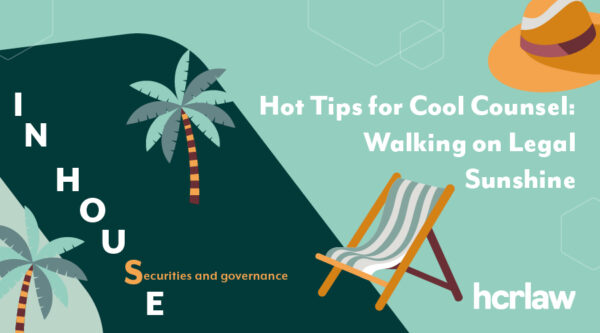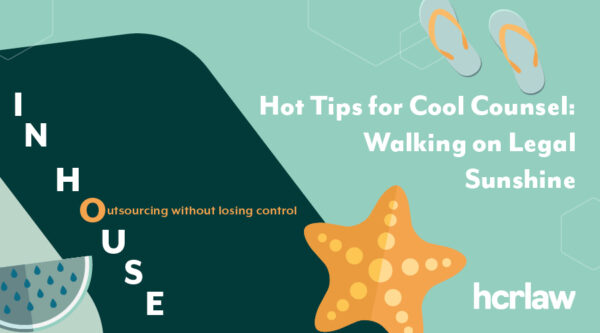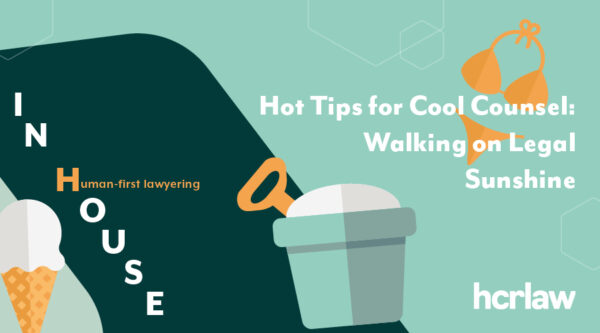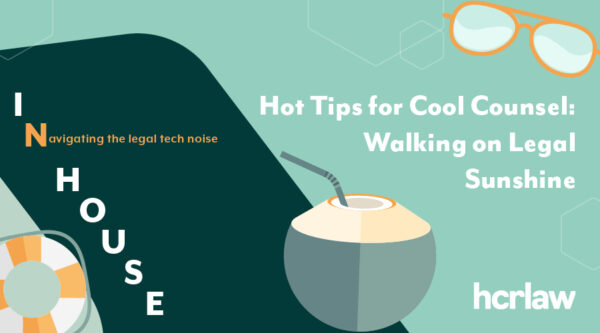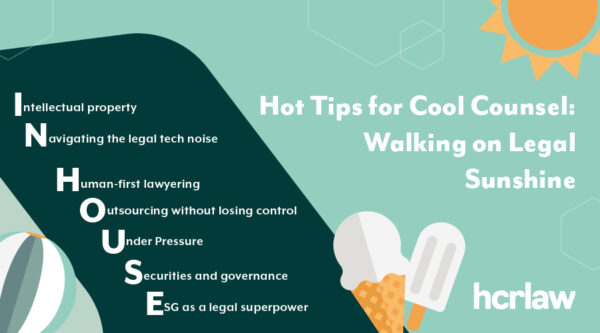
Managing business needs, whilst meeting your regulatory obligations as an in-house lawyer – frequently asked questions
21 November 2024

The Solicitors Regulation Authority Standards and Principles provide the fundamental ethical and professional standards for in-house lawyers. For in-house lawyers, precedence must be given to these over the interests of an employer. However, this can sometimes result in tension between the requirement of independence for IHLs and their status as an employee.
What can you do to protect yourself from implementing an employer’s wishes which may result in a breach of obligations?
- A good idea is to have a provision in the employment contracts for in-house lawyers that reflects their regulatory obligations. This should not be contentious given that it will simply set out the existing regulatory obligations to act with independence, integrity and in the public interest.
- Another way to demonstrate the independence of the General Counsel and team to the SRA is to implement a best practice governance protocol for the General Counsel working with the board. This creates a reporting line for them to a senior director, independent of your usual reporting line.
- Advise the business in a document headed ‘Private and Confidential. Legally Privileged – Not for Circulation’ to attract legal advice privilege and, importantly, to demonstrate the advice is provided in your capacity as a lawyer rather than commercial advice as an employee. Although retaining privilege is not the agenda here it will serve to evidence advice given to the business, which if not followed by the board should mean there is protection from a regulatory perspective, as long as you are not involved in activities addressed in the advice note which are capable of amounting to a serious breach of regulatory arrangements.
- It is good practice to keep a written record of any ethical judgement made and advice given in case of any potential future investigation by the SRA. Training to the board on legal function and regulatory obligations as an education piece to avoid the tension arising is also a good idea.
What should be included on a checklist for conflicts and confidentiality?
While this is by no means exhaustive because each case turns on its facts, a good starting point before discussion with the General Counsel includes asking:
- Who are the entities?
- What is the subject matter and what are we being asked to do? Is it related?
- Would acting for both clients give rise to a COI or is there a significant risk of one arising?
- Is there a common interest exception?
- Have clients agreed for information to be shared with written consent?
- Is there any reason we should not advise on the matter – do we have a personal connection to this matter or anything to gain from it?
- Do we hold material information for one party which prevents you acting in the best interests of the other party?
What should you consider and what practical steps should you take to ensure that you fulfil SRA duties when preparing a contract on behalf of two related parties in the group?
To start with, you should ask:
- Are the interests of the parties aligned?
- Why is it necessary for you to be the sole advisor?
- Have the parties consented and do you have a written record of this?
- Have the consequences if a COI arises after you start acting been explained?
- Have you established and explained to each party how confidential information will be shared and held?
What should you do if you are asked to backdate a document where employer and third party have agreed to do so because of an administrative error?
You should never backdate documents. Doing so is a fraud and in breach of your regulatory obligations. If you employer pressurises you to do so, you should explain your obligation to act with honesty, integrity and independence and that it’s not in your employer’s best interest to backdate a document as this could render the document unenforceable. A sensible alternative in this scenario might be an effective date clause.
A witness statement provided by a director of the business contains statements that I know are incorrect or untrue. After discussing this with them I am satisfied they know some of the information in their statement is not true, but they will not change their statement. What should I do?
You are obliged to uphold the rule of law. You should not file or serve a witness statement in the knowledge that the contents are neither true nor accurate as this will make you complicit in misleading the court.
Rule 1.4 of the SRA Code for Solicitors prohibits you from misleading the court, be it by our own acts or the omissions of others – i.e., your employer. Civil Procedure Rule 32.14(1) also says that a person who makes, or causes to be made, a false statement in a witness statement verified by a statement of truth without an honest belief is guilty of contempt.
Do all solicitors in my in-house team need to have a practising certificate and if ‘yes’ is the employer obliged to pay for them?
A practising certificate is needed if:
- They are held out and employed as a solicitor, whether implicitly or explicitly
- If their job title includes ‘solicitor’, ‘lawyer’, ‘counsel’, ‘attorney’ or ‘legal practitioner’
- They are described by themselves and others as being a member of the Law Society
It’s not obligatory for your employer to pay for your practising certificate, although many do. This is something you should check with your employer and seek to include that your employer will pay the annual fee within your contract of employment.
For more information please contact, Elizabeth Beatty, Partner and Head of In-House Lawyer Services.
We are HCR Law and this is In-House with You – empowering in-house lawyers to remain invaluable within their organisations.
If you’re an In-House Lawyer, General Counsel or Head of Legal, follow us on LinkedIn to unlock valuable legal updates, insights, tips, guidance and advice for you and your in-house legal team.

